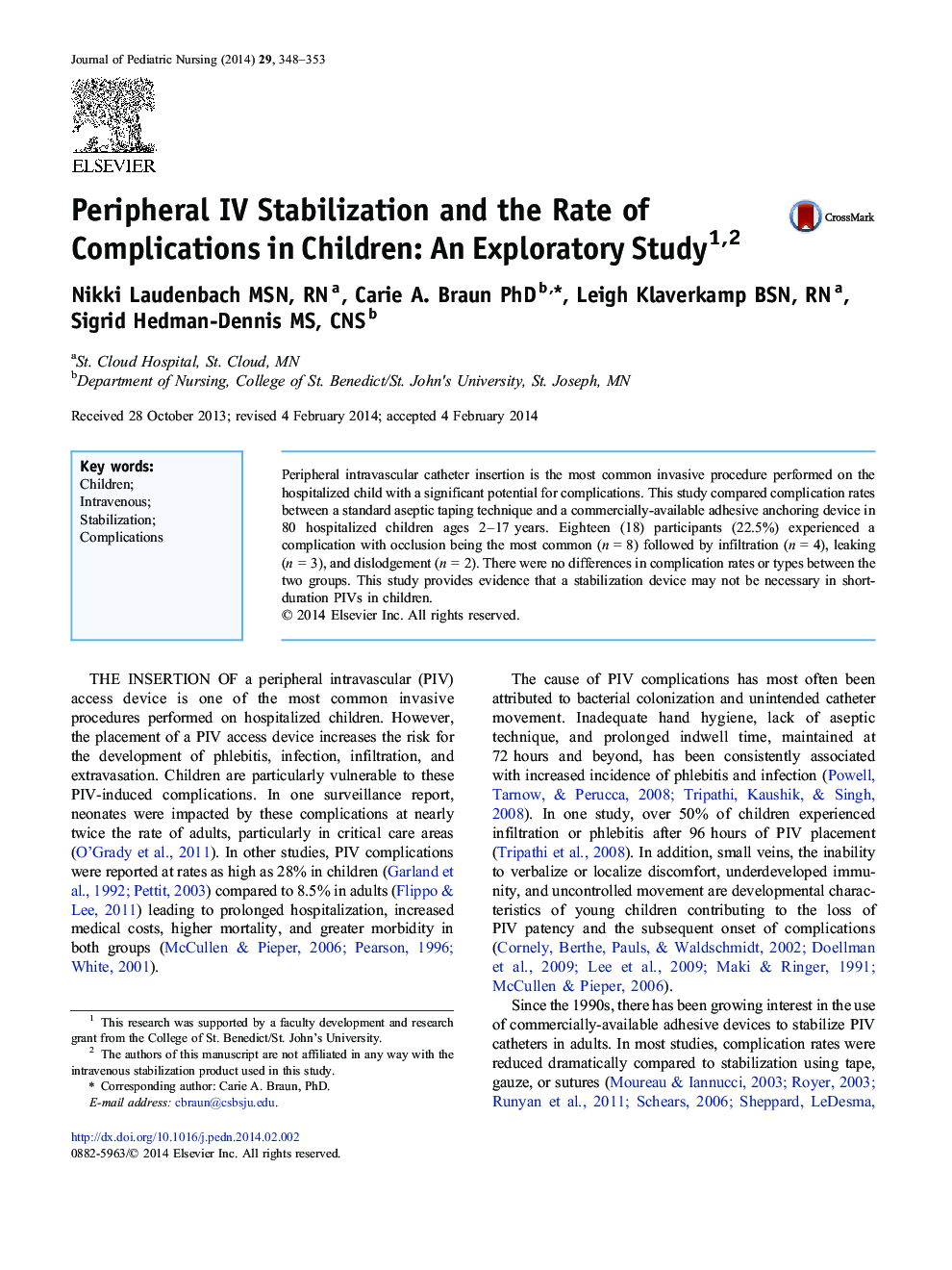| Article ID | Journal | Published Year | Pages | File Type |
|---|---|---|---|---|
| 2663762 | Journal of Pediatric Nursing | 2014 | 6 Pages |
Abstract
Peripheral intravascular catheter insertion is the most common invasive procedure performed on the hospitalized child with a significant potential for complications. This study compared complication rates between a standard aseptic taping technique and a commercially-available adhesive anchoring device in 80 hospitalized children ages 2–17 years. Eighteen (18) participants (22.5%) experienced a complication with occlusion being the most common (n = 8) followed by infiltration (n = 4), leaking (n = 3), and dislodgement (n = 2). There were no differences in complication rates or types between the two groups. This study provides evidence that a stabilization device may not be necessary in short-duration PIVs in children.
Related Topics
Health Sciences
Medicine and Dentistry
Perinatology, Pediatrics and Child Health
Authors
Nikki Laudenbach, Braun Carie A., Leigh Klaverkamp, Sigrid Hedman-Dennis,
